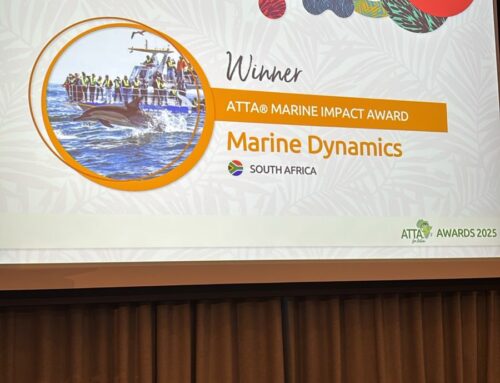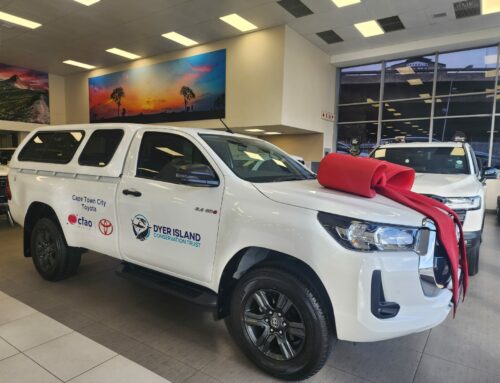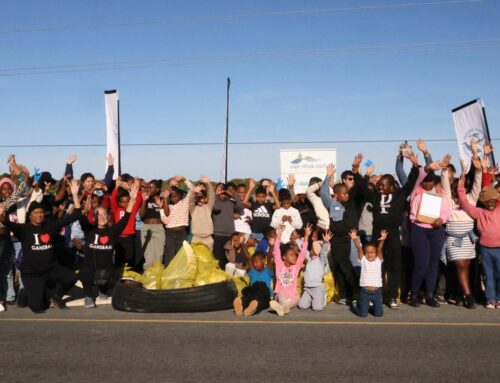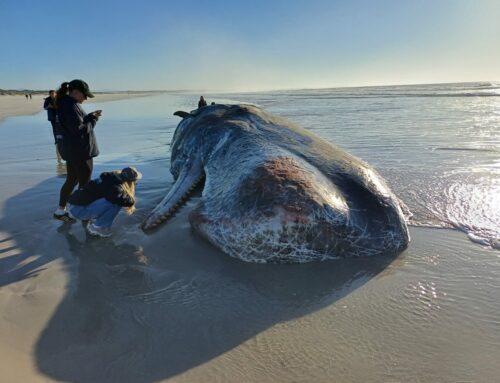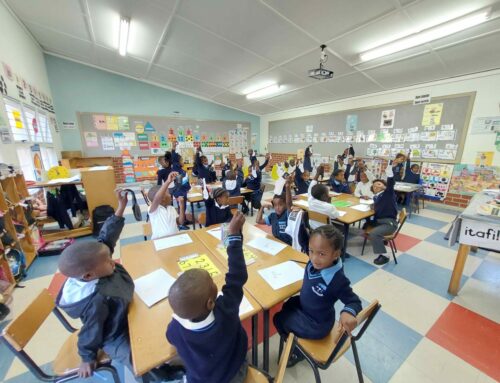On Sunday 21st of February, the infamous pair of male orcas Port and Starboard, who are known to prey on several species of sharks in south Africa, were tracked by a team of scientists on board Marine Dynamics vessel. “We observed the two orcas repeatedly diving down in a small area, for almost two hours before they departed offshore” said Ralph Watson, Marine Dynamics Academy. The following Tuesday, eleven deceased Broad nose sevengill shark carcasses were retrieved from the same beach by Watson and the MDA team.
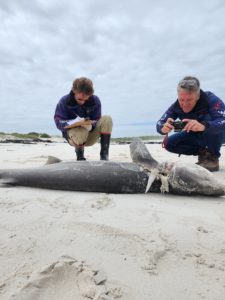
Alison Towner, PhD candidate at Rhodes university leads the research on killer whales preying on sharks in Gansbaai. She joined Watson to perform the necropsies with the students. “This research is part of a co ordinated effort between various killer whale and shark scientists, it has been ongoing since 2015” said Towner. “Each sevengill shark was torn open and missing its liver, they were all females measuring between 1.6-2.3 meters and had similar injuries to those killed in False Bay by the same orca pair”.
Eight more shark carcasses were retrieved by Watson and the team this morning, at the same location (Thursday 3rd February). “This brings the total to 17 sevengill sharks. A second necropsy is planned for tomorrow with more details to come” said Watson.
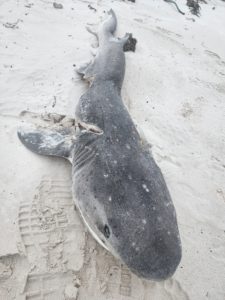
Storm and surge conditions early in the week provided good conditions to push the shark carcasses on shore. “This is the largest amount of sharks these orcas have killed in this area, in one sitting” says Towner, “There could well be more that didn’t wash out”.

